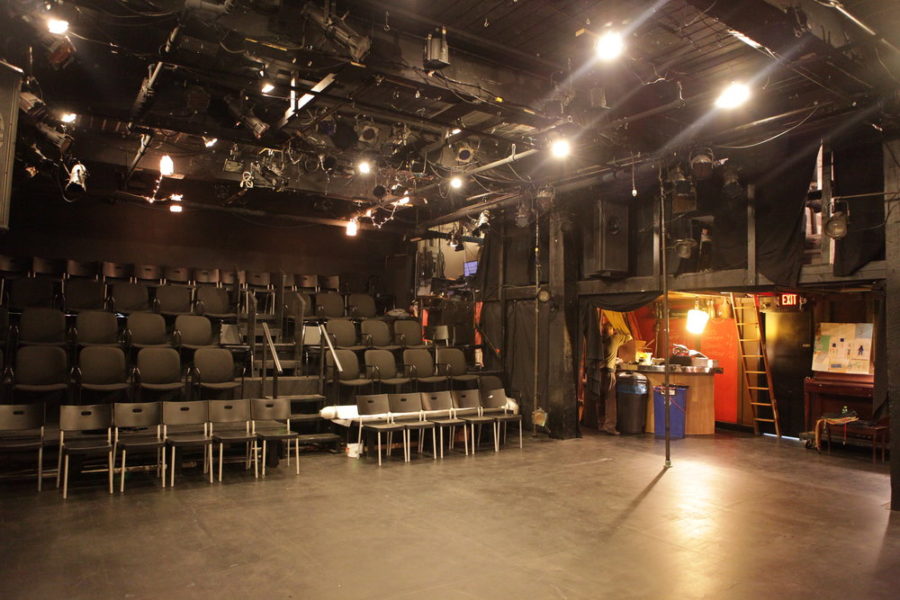Community, Leadership, Experimentation, Diversity, & Education
Pittsburgh Arts, Regional Theatre, New Work, Producing, Copyright, Labor Unions,
New Products, Coping Skills, J-O-Bs...
Theatre industry news, University & School of Drama Announcements, plus occasional course support for
Carnegie Mellon School of Drama Faculty, Staff, Students, and Alumni.
CMU School of Drama
Thursday, November 21, 2019
Studies Show Big Impact of Small Theatres in NY, Chicago
AMERICAN THEATRE: Two new studies of two different metropolitan areas give hard numbers to what many suspect: that small theatres have an outsized influence not only on the theatre business but on local economies as well. A study published by New York Mayor Bill de Blasio’s office of media and entertainment shows that the city’s theatres and their artistic output contribute $1.3 billion annually to the local economy. And in Chicago, Chris Jones of the Chicago Tribune found that small theatres contributed $80 million, based on a study released by the Gaylord and Dorothy Donnelley Foundation. To give a sense of scale, New York’s commercial Broadway theatres are estimated to contribute $12.63 billion to the New York City economy, while Broadway in Chicago—a production company in the Windy City owned by the Nederlanders—brings in $635 million.
Subscribe to:
Post Comments (Atom)

3 comments:
Growing up, I was only really introduced to big name commercial Broadway productions, and it wasn’t until the last two years that I got a taste of what smaller theaters have to offer. After reading this article, I’m actually really surprised (in the best way) that these small theaters contribute that much to the economy. Sure, it’s not as big of a chunk as Broadway, but Broadway money is ridiculous. As I was reading the beginning, my mind wandered to the cultural impact beyond the financial, and then I got to the point where they mentioned it in the article! I completely agree with the ability of a smaller theatre to potentially make a bigger ripple in the cultural pond, because it is a lower stakes opportunity to put on a show. And a faster turnaround which means even more opportunities to put on ‘risky’ shows. Last summer I went to a lab Off-Broadway about Oakland in the 1960s and watched a moving story about race-relations. Shows and venues like this are so important, and I agree with the article that this is proof that these primarily non-profit theaters should be supported.
Though I appreciate what this article is saying as a whole, I am especially happy that they take the time to discuss the cultural impact that small theaters can have. It may not be a fair distinction in all cases, but it could be said with some backing that Broadway theater has become a mainstream form of consumerism in recent years, especially when it comes to some of the bigger musicals. Though there is still a ton of value to these productions societally and emotionally, I can't help but be more excited hearing about off-Broadway productions that are taking the bigger risks because they don't have to worry as much about selling out enormous audiences night after night. The article also mentions that small theater has a lot of volunteer involvement, which is a great way of getting people more actively involved and invested in theater at a local scale. Because theater, like almost all other arts, is currently facing a sometimes shaky and unpredictable future in cultural support it is important for people to see what theater can do.
I grew up thinking that broadway was crowning achievement in theatre, but I couldn't have been more wrong about that. I have found myself searching out these small venues that take the risks of putting on meaningful productions not for a profit, but rather because they believe it is vital that this art is seen and heard. I've said it before and I'll say it again, people go to the theatre for a uniquely human experience that you cannot get anywhere else. These small venues have their finger on the pulse of their communities in a way that the large commercial theaters just can't grasp. They can connect with audiences in an unparalleled way, which is why they are having the impact in the communities that we see in this article. Some of the best productions I have seen have been in converted theater spaces because stories needed to be told in that community, and it is exciting to see that these gems are making a positive impact.
Post a Comment